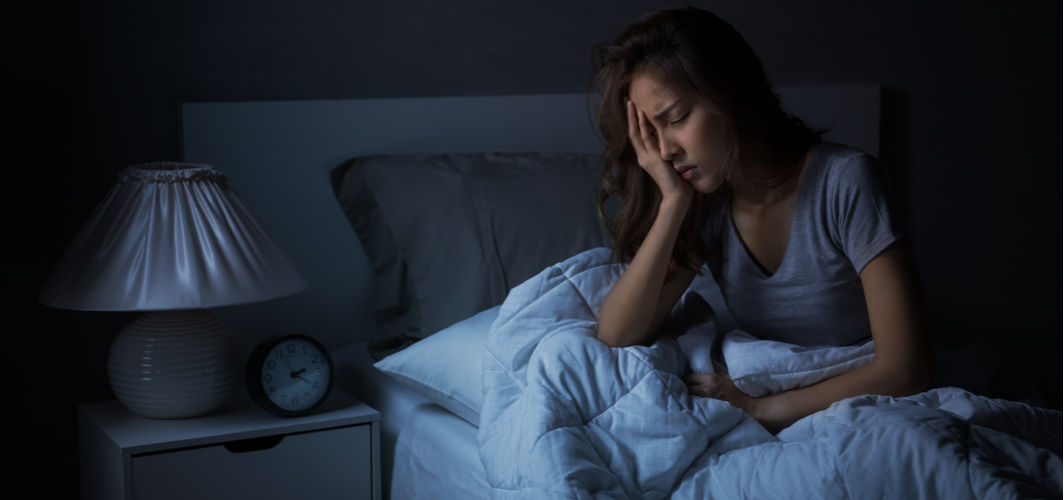General Health
A Complete Guide To Constipation: Causes, Home Remedies, and Red Flags
5 min read
By Apollo 24|7, Published on - 13 October 2022, Updated on - 29 March 2023
Share this article
0
10 likes

A healthy bowel movement is extremely important for one's well-being. It is much like your body's 'daily update'. While regular bowels with complete and smooth movement indicate a healthy digestive system, hard, dry or fewer than three bowel movements a week mark the red flag of constipation. Soon you'll experience a stark rise in acidity, a certain heaviness in the head, an urgency to puke, constant fatigue & irritation, and tiny pimples popping on your face and body. These are yet another signs that something is wrong in the body and needs to be fixed.
However, unfortunately, constipation is one such common episode of our lives, that after a point it stops feeling unusual at all. We all know the drill. Have some water, pop a pill, and move on. Well, while this is fine once in a while, the problem begins when it becomes a pattern.
Read on to know the different causes, distinctive symptoms and some time-tested home remedies for chronic constipation.
However, be extra careful of the red flags! These are the definite symptoms that you must visit your doctor urgently, or your condition may spiral into a medical emergency.
What is Constipation?
Constipation is characterised by the slow passage of stools through the digestive tract or their incomplete elimination from the rectum. A person may be diagnosed with constipation if they have more than three of the following symptoms:
- Fewer than three bowel movements during the week
- Dry, hard and lumpy stools
- Difficulty or painful passage of stools
- Feeling of fullness even after passing stools
- Abdominal pain or cramps
- Bloating and flatulence in the abdomen
What causes Constipation?
Some of its most common causes of constipation include-
- Eating foods low in fibre
- Dehydration or not drinking enough water
- Lack of exercise or physical activity
- Stress
- Blockages in the colon or rectum that delay or slow down stool movement
- Nerve-related problems that affect the contraction of the rectum or colon and stool passage through the intestines
- Resisting the urge to have a bowel movement
- Strong medications like narcotics, NSAIDs, antidepressants, antacids, iron pills, anti-allergy medications, some anti-hypertensive drugs, anti-seizure drugs and antinausea medications
- Pregnancy
- Excessive or frequent travel
- Change in dietary intake
- Increasing age
6 Best Home Remedies for Chronic Constipation
Healthy lifestyle and dietary changes can positively help break the cycle of constipation. Here are some time-tested remedies-
1. Increase Intake of Dietary Fibre
Adequate intake of dietary fibre increases the bulk of the stool and enables its easy passage through the intestine and out of the rectum. Eating a well-balanced diet packed with nutritional foods like fresh fruits and vegetables, whole grains, seeds, and nuts is an effective way to relieve constipation.
2. Increase Your Water Intake
Drinking lots of water helps soften the stools and assists in their easy passage throughout the digestive tract. Adding freshly prepared fruit or vegetable juices also helps soften stools and relieve symptoms of constipation.
3. Add Prebiotics to Your Diet
Prebiotics are foods rich in ingestible carbohydrate fibres such as inulin that improve stool consistency and bulk and stimulate the digestive tract to assist stool passage. A few effective prebiotics that help relieve constipation are onions, chickpeas and garlic.
4. Try Lemon and Honey in Water
Adding lemon juice with some honey to a glass of warm water is known to trigger bowel movements. This is attributed to the lemon, a stimulant to the digestive system and honey’s mildly-laxative properties. This combination of lemon and honey helps relieve constipation.
5. Avoid Constipating Foods
While eating the right foods is important, avoiding foods that cause constipation is also essential. A few of these include alcohol, caffeine and foods high in sugars.
6. Use OTC Laxatives
Consuming mild OTC laxatives can help stool expulsion and relieve symptoms of constipation. However, if you need to take laxatives daily, you must visit your doctor for a consultation.
Spot the Red Flags: When Is Constipation A Medical Emergency?
For many people, constipation is a regular feature. However, no matter how ordinary the problem seems, you must seek treatment for chronic constipation early before it spirals into a medical emergency. Constipation can cause complications like haemorrhoids, anal fissures, or rectal prolapse if left untreated.
Here are some red flags to look out for and visit your doctor immediately:
- Severe or extreme abdominal pain or discomfort while passing stools
- Blood in stool
- Unexplained or unusual weight loss
- Inability to pass stools
- Severe bloating
- Stomach pain that continues to worsen
- Constipation that has lasted over three weeks
To know more about constipation and its effective treatment methods, consult our doctors.
Frequently asked questions about constipation
Does coffee cause constipation?
Caffeine can stimulate muscles in your digestive tract to contract and cause a bowel movement. However, in people who are dehydrated, it may trigger constipation. So, if you are struggling with constipation, it is best to go decaf and avoid all beverages that contain caffeine.
Can corn cause constipation?
The effect of corn on your bowel movements depends upon factors like its quantity and whether you are consuming it fresh or processed. Eating adequate amounts of corn can relieve constipation as it is rich in fibre. However, the high carbohydrates in refined and processed corn may trigger the growth of harmful gut bacteria, resulting in constipation.
Can constipation lead to fever?
Constipation does not cause a fever. However, it is likely that you may have constipation and fever at the same time. In a few medical conditions like diverticulitis, fever and constipation may co-exist.
Does rice cause constipation?
Whole grains are fibre-rich and help relieve and prevent constipation. However, consuming foods that cause constipation, like processed grains, including white rice, may slow down your bowel movements as they contain less fibre than their whole-grain counterparts.
Can constipation be treated at home?
If your constipation is due to unhealthy lifestyle or dietary habits, home remedies like increasing fibre intake, regular exercise, and increased water consumption can treat the condition at home.
General Health
Leave Comment
Recommended for you

General Health
What Causes Nightmares?
Nightmares are particularly common in people with Post Traumatic Stress Disorder (PTSD), who have experienced traumas in life or were serving in military war zones.
.jpg?tr=q-80)
General Health
MRI: What It Is, Purpose, Procedure and Results
Magnetic resonance imaging is a non-invasive medical imaging technique that uses magnetic fields and radio waves to produce detailed images of organs in the body without using radiation. It is commonly used for diagnosing and monitoring various medical conditions. The article explains the procedure and its significance for different medical evaluations.

General Health
Jaggery Vs Refined Sugar: Which Is The Healthier Sweetener?
This article compares jaggery and refined sugar as sweeteners, discussing their impact on health. It covers aspects such as nutrition, digestion, natural sweetness, antioxidants, immune support, respiratory health, and blood purification.
Subscribe
Sign up for our free Health Library Daily Newsletter
Get doctor-approved health tips, news, and more.
Visual Stories

Plant-based Foods That Are a Great Source of Iron
Tap to continue exploring
Recommended for you

General Health
What Causes Nightmares?
Nightmares are particularly common in people with Post Traumatic Stress Disorder (PTSD), who have experienced traumas in life or were serving in military war zones.
.jpg?tr=q-80)
General Health
MRI: What It Is, Purpose, Procedure and Results
Magnetic resonance imaging is a non-invasive medical imaging technique that uses magnetic fields and radio waves to produce detailed images of organs in the body without using radiation. It is commonly used for diagnosing and monitoring various medical conditions. The article explains the procedure and its significance for different medical evaluations.

General Health
Jaggery Vs Refined Sugar: Which Is The Healthier Sweetener?
This article compares jaggery and refined sugar as sweeteners, discussing their impact on health. It covers aspects such as nutrition, digestion, natural sweetness, antioxidants, immune support, respiratory health, and blood purification.